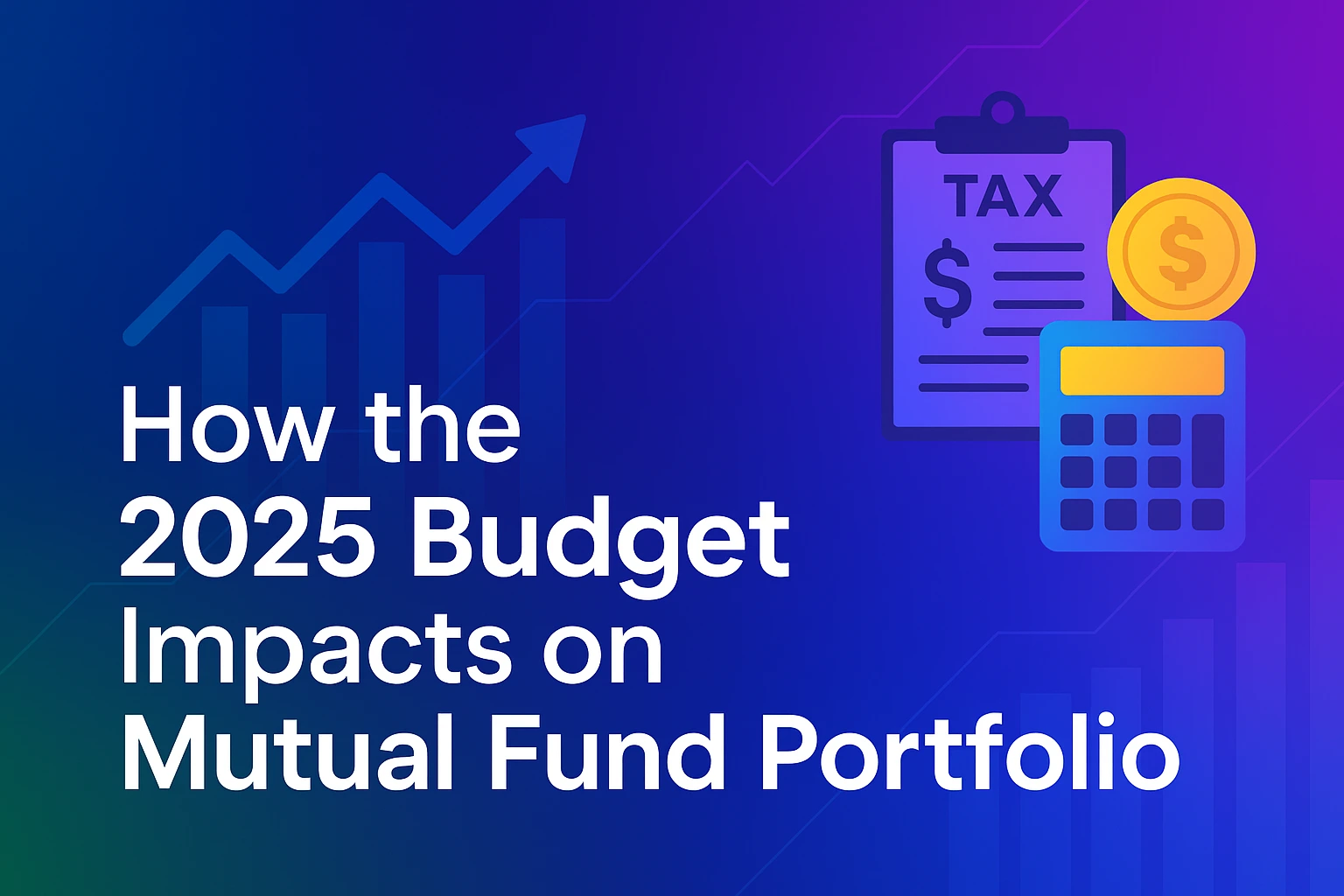
How the Budget Impact on Mutual Fund Portfolios in 2025
The Budget Impact on Mutual Fund portfolios has become a hot topic in 2025. Investors are worried about how the new tax rules will affect their earnings. This article will explain everything in simple words. From LTCG to exemption sections, we have covered all important points for you.
Understanding the Budget Impact on Mutual Fund Investments
The 2025 Budget has made some key changes. These changes affect how your mutual fund income is taxed. Whether you are a new or experienced investor, it is important to understand them.
Firstly, mutual funds continue to remain a popular choice. However, new tax rules might impact your returns. Therefore, being aware can help you plan better.
Is Mutual Fund Income Taxable After the 2025 Budget?
Earlier, many investors thought mutual fund earnings were tax-free. However, this is not fully true.
After the Budget, mutual fund income is taxable.
There are two types of capital gains:
For equity mutual funds, if you sell units within 12 months, it falls under STCG. If held for more than 12 months, it becomes LTCG.
Mutual Fund Tax Distribution (2025)
Budget Impact on Mutual Fund (Before vs After)
Tax Impact Over Time (Projected)
What About LTCG on Mutual Funds?
The Budget Impact on Mutual Fund portfolios has directly touched LTCG.
Now, LTCG over ₹1 lakh in a financial year is taxed at 10% without indexation.
Earlier, there were talks about removing LTCG completely. However, the 2025 Budget has kept LTCG but increased surveillance on reporting.
Moreover, for debt mutual funds, LTCG rules have changed slightly. No indexation benefit will be allowed if the investment is made after April 1, 2023.
Budget Impact on Mutual Fund (2025)
Area | Before 2025 Budget | After 2025 Budget |
LTCG on Equity Mutual Funds | 10% on gains over ₹1 lakh (without indexation) | 10% on gains over ₹1 lakh (without indexation) |
LTCG on Debt Mutual Funds | 20% with indexation | 20% without indexation (for investments after April 1, 2023) |
Is Mutual Fund Taxable? | Yes (with special rates) | Yes (with stricter rules) |
Indexation Benefit | Available for Debt Mutual Funds | Not available for new debt fund investments |
Exemption Sections | 54F, 54EC available | 54F, 54EC still available |
Is Indexation Benefit Still Available?
Earlier, investors loved debt mutual funds because of the indexation benefit. It helped them reduce their taxable gains by adjusting for inflation.
Sadly, after the Budget changes, indexation benefit in mutual fund investments is removed for newer investments.
Only debt funds purchased before April 1, 2023, will continue to enjoy indexation benefits.
Thus, planning becomes necessary if you still want to save taxes smartly.
Exemption Sections You Must Know
Some exemption sections still offer relief.
Here are the key ones:
- Section 54F: Capital gains can be exempted if you invest the amount in a residential house.
- Section 54EC: Investment in certain bonds (like NHAI, REC) can give exemption for capital gains.
However, these benefits need proper timing. You must invest within the specified periods to claim exemptions.
How Investors Should Plan Now
Due to the Budget Impact on Mutual Fund, investors must relook at their strategies.
Diversification should be the focus. Pure debt funds might lose a bit of charm, but hybrid funds can offer a balance.
Also, holding your investments longer than a year for equity funds still remains a smart choice.
Moreover, tax planning through other available exemptions will be important. Consulting with financial advisors can bring more clarity.
Final Thoughts
The Budget Impact on Mutual Fund portfolios in 2025 is real. However, smart investors can adapt quickly.
Tax laws keep changing, but your planning must stay strong.
By understanding LTCG, taxability, and exemptions, you can protect your wealth better. Always stay informed and make decisions based on updated rules.
Disclaimer: Mutual fund investments are subject to market risks. Please consult a financial advisor before investing.
Market conditions change rapidly, and staying informed is crucial. Follow reliable financial news sources, analyse expert opinions, and track regulatory updates. Stay connected with us for more insights on market trends and stock analysis.
📚 Frequently Asked Questions (FAQs)
1. How does the 2025 Budget impact my mutual fund investments?
2. Is mutual fund income taxable after the 2025 Budget?
3. What is the LTCG tax rate on mutual funds post-2025 Budget?
4. Can I still claim indexation benefits on my old mutual fund investments?
5. Which exemption sections can I use after the 2025 Budget for mutual funds?
6. How to calculate capital gains tax on a mutual fund?
7. Is SIP investment tax-free after the 2025 Budget?
Disclaimer:
The information provided in this blog is for informational and educational purposes only and should not be construed as financial, investment, or legal advice. Equity investments are subject to market risks, and past performance is not indicative of future results.
This content does not constitute an offer, solicitation, or recommendation to buy or sell any securities, nor does it guarantee any specific financial outcome. Investors should conduct their own research, assess their risk tolerance, and consult with a certified financial advisor or investment professional before making any investment decisions.
The author and publisher of this blog are not liable for any financial losses, decisions, or actions taken based on the information provided. Invest wisely and at your own discretion.
